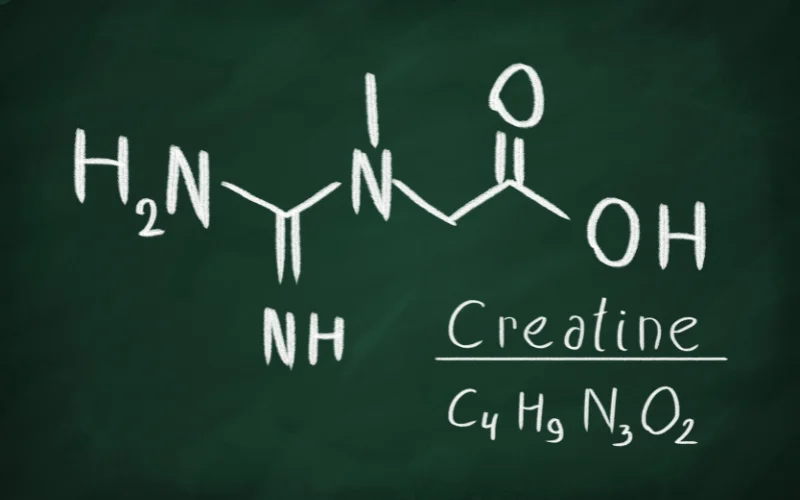Creatine is one of the most researched and popular supplements in the fitness community. Known for its ability to enhance athletic performance and promote muscle growth, it has become a staple for many athletes and fitness enthusiasts. This article delves into the specifics of taking 10g of creatine per day, exploring its benefits, potential concerns, and how to effectively incorporate it into your routine. Whether you are looking to boost your workouts or improve recovery, understanding creatine can help you maximize your fitness goals.
Key Takeaways
- 10g of creatine daily can significantly enhance athletic performance and recovery.
- Initial weight gain from creatine is primarily due to water retention in the muscles.
- Creatine supports muscle mass gain and strength improvement when combined with resistance training.
- Staying hydrated is crucial while supplementing with creatine to avoid dehydration.
- Creatine may also provide cognitive benefits, enhancing mental performance during workouts.
What is Creatine?

Creatine is a naturally occurring compound found in small amounts in certain foods and synthesized by the body from amino acids. It plays a crucial role in the production of adenosine triphosphate (ATP), which is the primary energy carrier in cells. By supplementing with creatine, particularly in doses of 10g per day, you can increase your muscle’s creatine stores, leading to enhanced energy production during high-intensity exercise. This boost in energy can translate into improved performance, making it a valuable addition to any training regimen.
Benefits of Taking 10g of Creatine Daily

Incorporating 10g of creatine per day into your routine can yield numerous benefits, particularly for those engaged in high-intensity training or sports. Here are some of the key advantages:
Improved Athletic Performance
One of the most significant benefits of creatine supplementation is its ability to enhance athletic performance. By increasing the availability of ATP, creatine allows for more explosive movements and sustained efforts during workouts. This can be particularly beneficial for activities such as sprinting, weightlifting, and high-intensity interval training (HIIT). As a result, athletes often experience improved strength, speed, and overall performance.
Increased Muscle Mass
Creatine is well-known for its role in promoting muscle growth. When you take 10g of creatine daily, your muscles not only store more creatine but also retain additional water, which can lead to an increase in muscle size. This process, known as cell volumization, can create an environment conducive to muscle growth. Over time, this can contribute to significant gains in lean muscle mass, making creatine a popular choice among bodybuilders and those looking to increase their physical stature.
Enhanced Recovery
Recovery is a crucial aspect of any training program, and creatine can play a vital role in this process. Supplementing with creatine has been shown to reduce muscle cell damage and inflammation following intense exercise. This can lead to quicker recovery times, allowing you to train more frequently and effectively. Additionally, creatine may help replenish glycogen stores more rapidly, further aiding in recovery after workouts.
Potential Cognitive Benefits
Interestingly, creatine is not just beneficial for physical performance; it may also offer cognitive benefits. Some studies suggest that creatine supplementation can improve cognitive function, particularly in tasks requiring memory and quick thinking. This is particularly relevant for athletes who need to maintain focus and mental clarity during competition. By taking 10g of creatine daily, you might not only enhance your physical capabilities but also support your mental performance.
Supporting Your Diet
If you’re following a specific dietary plan, such as the zig zag diet, creatine can be a helpful addition. This diet alternates between high and low-calorie days, and creatine can help maintain your energy levels and performance during high-calorie intake days. By ensuring that your muscles are well-saturated with creatine, you can maximize your gains while adhering to your dietary regimen.
Enhanced Hydration
Creatine supplementation can also promote better hydration status in the muscles. By drawing water into muscle cells, creatine helps maintain optimal hydration levels, which is crucial for effective muscle function and overall performance. Proper hydration can prevent fatigue and cramping during workouts, allowing for longer and more productive training sessions. This additional water retention can also enhance muscle fullness, contributing to a more robust appearance.
Improved Bone Health
Recent studies indicate that creatine may play a role in supporting bone health. By promoting muscle strength and stability, creatine can indirectly contribute to better bone density and reduce the risk of fractures, especially in older adults or those engaging in weight-bearing exercises. This benefit is particularly important for individuals looking to maintain their mobility and strength as they age, making creatine a valuable supplement for long-term health.
Creatine and Weight Gain

When discussing creatine supplementation, weight gain is often a concern for many individuals. The majority of the initial weight gain is attributed to water retention in the muscles, as creatine draws water into muscle cells. This increase in water content can lead to a temporary rise in body weight from creatine, which may be confusing for those focused on fat loss. However, this water retention is generally beneficial, as it helps improve muscle performance and recovery during workouts.
In addition to the water weight, creatine can contribute to muscle mass gains over time. With consistent training and proper nutrition, users may see significant improvements in strength and muscle hypertrophy. Thus, while some may experience an increase on the scale, it’s essential to recognize that this weight gain can be a sign of improved muscle health and performance rather than fat accumulation.
Concerns and Considerations

While 10g of creatine per day is generally safe for most individuals, there are some considerations to keep in mind:
- Kidney Health: If you have pre-existing kidney conditions, consult a healthcare professional before starting creatine supplementation.
- Gastrointestinal Issues: Some people may experience stomach cramps or diarrhea. If this occurs, consider reducing the dosage or taking creatine with food.
- Hydration: As mentioned earlier, staying hydrated is crucial when taking creatine. Aim for at least 8-10 glasses of water per day.
Conclusion
Taking 10g of creatine per day can significantly enhance your athletic performance, increase muscle mass, and improve recovery times. With the potential cognitive benefits and ease of integration into various dietary plans, creatine is a versatile supplement that many can benefit from. While some initial weight gain may occur due to water retention, this is a normal part of the process and not indicative of fat gain. As always, it’s essential to consult with a healthcare professional before starting any new supplement regimen, especially if you have underlying health concerns. By understanding the benefits and considerations of creatine, you can make an informed decision that aligns with your fitness goals and lifestyle.
FAQs
Can I take creatine with other supplements?
Yes, creatine can be safely combined with other supplements, such as protein powders, branched-chain amino acids (BCAAs), and pre-workout formulas. However, it’s always advisable to consult with a healthcare professional or nutritionist to ensure compatibility and optimal timing.
Is there a risk of dehydration when taking creatine?
While creatine can draw water into muscle cells, it’s essential to stay adequately hydrated while supplementing. Some studies suggest that creatine can increase the risk of dehydration if fluid intake is insufficient, especially during intense workouts. To mitigate this risk, ensure you drink plenty of water throughout the day.
How long does it take to see results from creatine?
Many individuals report noticeable improvements in strength and muscle mass within a few weeks of consistent creatine supplementation. However, results can vary based on factors such as training intensity, diet, and individual response to the supplement.






